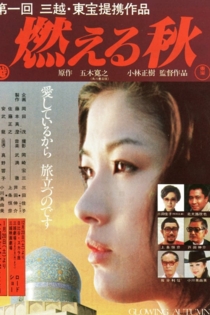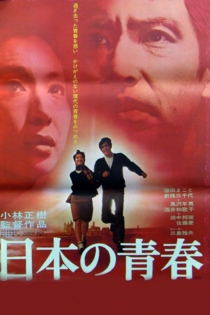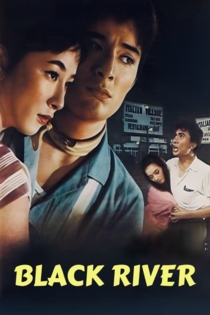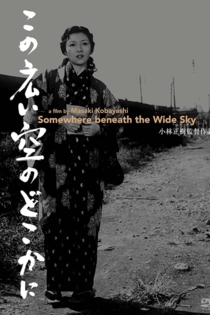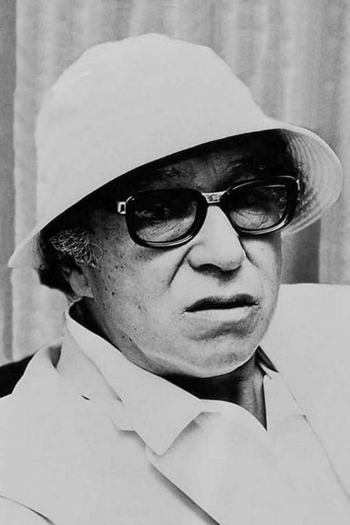
Masaki Kobayashi
1916 - 1996Among his films is Kwaidan (1965), a collection of four ghost stories drawn from the book by Lafcadio Hearn, each of which has a surprise ending.
Kobayashi also directed The Human Condition, a trilogy on the effects of World War II on a Japanese pacifist and socialist. The total length of the films is over 9 hours. Other notable films include Harakiri (1962) and Samurai Rebellion (1967). Harakiri won him an award at the 1963 Cannes Film Festival, solidifying his place in the history of cinema.
In 1969, he was a member of the jury at the 19th Berlin International Film Festival.
He was also a candidate for directing the Japanese sequences for Tora! Tora! Tora!, once Akira Kurosawa left the film. But instead Kinji Fukasaku and Toshio Masuda were chosen.
Kobayashi, himself a pacifist, was drafted into the Imperial Japanese Army during World War II, but refused to fight and refused promotion to a rank higher than private.
Description above from the Wikipedia article Masaki Kobayashi, licensed under CC-BY-SA, full list of contributors on Wikipedia.
The Human Condition III: A Soldier's Prayer
Masaki Kobayashi
Tatsuya Nakadai, Michiyo Aratama
After the Japanese defeat to the Russians, Kaji leads the last remaining men through Manchuria. Intent on returning to his dear wife and his old life, Kaji faces great odds in a variety of different harrowing circumstances as he and his fellow men sneak behind enemy lines.
The Human Condition III: A Soldier's Prayer
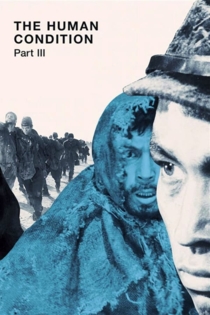
切腹
Masaki Kobayashi
Tatsuya Nakadai, Akira Ishihama
Down-on-his-luck veteran Tsugumo Hanshirō enters the courtyard of the prosperous House of Iyi. Unemployed, and with no family, he hopes to find a place to commit seppuku—and a worthy second to deliver the coup de grâce in his suicide ritual. The senior counselor for the Iyi clan questions the ronin’s resolve and integrity, suspecting Hanshirō of seeking charity rather than an honorable end. What follows is a pair of interlocking stories which lay bare the difference between honor and respect, and promises to examine the legendary foundations of the Samurai code.
Harakiri

人間の條件 第3部望郷篇/第4部戦雲篇
Masaki Kobayashi
Tatsuya Nakadai, Michiyo Aratama
Kaji is sent to the Japanese army labeled Red and is mistreated by the vets. Along his assignment, Kaji witnesses cruelties in the army and revolts against the abusive treatment against the recruit Obara. He also sees his friend Shinjô Ittôhei defecting to the Russian border, and he ends in the front to fight a lost battle against the Russian tanks division.
The Human Condition II: Road to Eternity
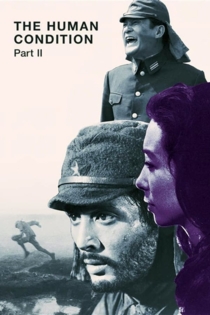
The Human Condition I: No Greater Love
Masaki Kobayashi
Tatsuya Nakadai, Michiyo Aratama
After handing in a report on the treatment of Chinese colonial labor, Kaji is offered the post of labor chief at a large mining operation in Manchuria, which also grants him exemption from military service. He accepts, and moves to Manchuria with his newly-wed wife Michiko, but when he tries to put his ideas of more humane treatment into practice, he finds himself at odds with scheming officials, cruel foremen, and the military police.
The Human Condition I: No Greater Love
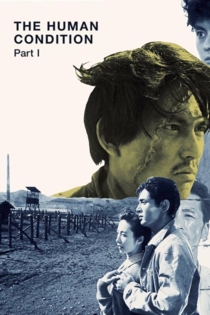
Samurai Rebellion
Masaki Kobayashi
Toshirō Mifune, Yôko Tsukasa
The mother of a feudal lord's only heir is kidnapped away from her husband by the lord. The husband and his samurai father must decide whether to accept the unjust decision, or risk death to get her back.
Samurai Rebellion
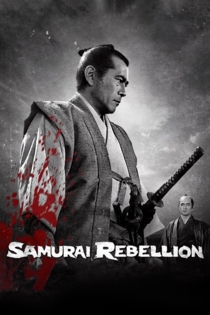
Kwaidan
Masaki Kobayashi
Michiyo Aratama, Misako Watanabe
Taking its title from an archaic Japanese word meaning "ghost story," this anthology adapts four folk tales. A penniless samurai marries for money with tragic results. A man stranded in a blizzard is saved by Yuki the Snow Maiden, but his rescue comes at a cost. Blind musician Hoichi is forced to perform for an audience of ghosts. An author relates the story of a samurai who sees another warrior's reflection in his teacup.
Kwaidan
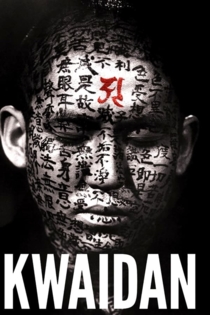
東京裁判
Masaki Kobayashi
Kei Satō
One of the major documentaries on a specific chapter in modern Japanese history, this look at the trial of Japanese militarists accused of war crimes is excellently handled by director Masaki Kobayashi. Kobayashi and his assistants had to plough through 30,000 reels from the proceedings of the International Military Tribunal which took place between May, 1946 and November, 1948. It took two days to read the charges against the 100 alleged war criminals in the docket (only 28 top officials are actually in the courtroom, which was limited in space), and the final judgment took one week to read.
Tokyo Trial
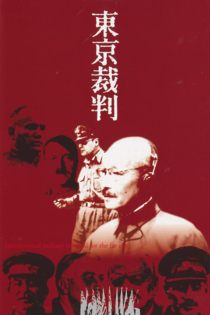
The Inheritance
Masaki Kobayashi
Keiko Kishi, Tatsuya Nakadai
On his deathbed, a wealthy businessman announces that his fortune is to be split equally among his three illegitimate children, whose whereabouts are unknown to his family and colleagues. A bevy of lawyers and associates scheme to procure the money for themselves, enlisting the aid of impostors and blackmail.
The Inheritance
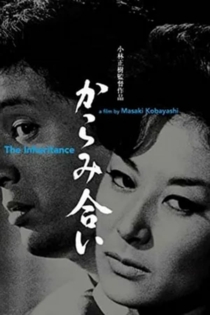
化石
Masaki Kobayashi
Shin Saburi, Keiko Kishi
An industrialist is diagnosed with terminal cancer. He is on a trip to Europe at the time, and a glimpse of a Japanese woman in that setting causes him to fantasize about her as the personification of his impending death. As his dialogue with his imagined mortality continues, he actually meets the living woman who is the template for his fantasy, and together they tour rural churches. Gradually he comes to some kind of peace about the diagnosis. When he returns to Japan, he is met with a series of challenges which profoundly test the lessons he has learned.
The Fossil
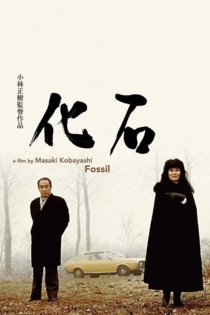
いのちぼうにふろう
Masaki Kobayashi
Tatsuya Nakadai, Komaki Kurihara
The story takes place in feudal Japan, when any commerce with the rest of the world was strictly prohibited. An idealist suddenly appears in an isolated inn (the one that the title refers to), the head-quarters of a group of smugglers, with stolen money intended to ransom his loved one who is forced to work in a brothel.
Inn of Evil
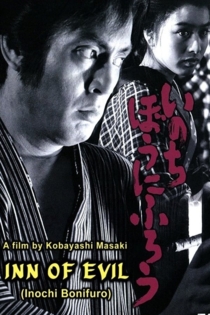
食卓のない家
Masaki Kobayashi
Tatsuya Nakadai, Mayumi Ogawa
One year has passed since the Kidojis' eldest son Otohiko was arrested for his part in a terrorist kidnapping, which resulted in multiple deaths. Although the parents of all the other perpetrators have either resigned from their professional positions or taken their own lives, Nobuyuki Kidoji tries to remain adamant that he was not responsible for his son's actions.
The Empty Table
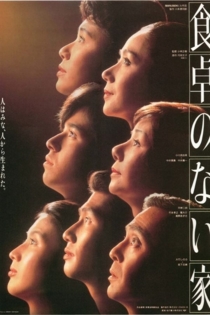
燃える秋
Masaki Kobayashi
Shinsuke Ashida, Hisashi Igawa
A very beautiful Japanese woman is in love with Persian carpets. She is being chased by lecherous Saburi Shin and a handsome young photographer. Lecherous Saburi Shin knows what she wants, and is able to produce it for her.
Glowing Autumn
